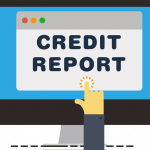How To Improve Your Credit Score
What is a credit rating?
-
There is actually no such thing as one, universal credit rating
There is no such thing as a credit blacklist – this is a myth. There is no universal credit rating or score that will always determine who is on the naughty list, as it were. Each lender scores you differently using a secret formula. This means that even when one lender has rejected you, you may still be accepted by other companies. After a rejection, however, it is always best to check your credit file for errors before you apply again.
Credit scoring is largely intuitive. It is easy to see why lenders would not want to deal with someone with a history of defaulting on payments. But there is a sliding scale rather than a fixed blacklist and some companies are more happy than others to deal with those with black marks on their files (though, of course, those with lower credit will usually pay more for the privilege).
The tools used by lenders to decide are not the same either. Your credit file is just one of the things that lenders will use to determine whether or not you will be accepted. They will also look at the information on your application and any past dealings they may have had with you before building up their picture of you and coming to their conclusions.
-
Credit rating is about future predictions
Lenders want to know the future. They want to be able to predict how you will act moving forward. When you apply for credit, lenders will carry out a ‘credit check’. What this ‘credit check’ really means is that all the data that lenders have access to, including your past payments, any debts and defaults, along with credit arrangements that you have met successfully, is poured into a complicated algorithm which tries to work out, based on what you have done in the past, how you will behave in the future.
This means that having little credit history can be as problematic as having a bad credit history. This is simply because there is less information for the algorithm to go on, and it is more difficult to determine future behaviour. This makes you more of a risk for lenders, which is why those with no or little credit history can find it difficult to get credit in the first place.
-
Risk is a factor, but profit is more important
Some people get really confused when rejected for credit. You may have always paid all your bills on time – but that does not mean you will always be accepted by lenders. While those who have paid late or defaulted a lot on payments are likely to be declined, you may also be declined simply because you will not be profitable for the company in question. Lenders do look at risk (after all, not being paid would lose a company money) but profit is overall a much more important concern.
The most profitable companies are not those who always repay their cards in full. Credit card companies may reject you if they don’t think they will make money off you based on how you have behaved in the past. If you pay off in full every month, don’t use your cards enough, or always shift debt to 0% cards, some credit card companies may reject you. The most profitable customers (and therefore the most likely to be accepted) are those who are always in debt, never defaulting, but always meeting the minimum repayment.
Nonetheless, this is no reason not to pay off credit cards in full, especially if you don’t have a 0% card. If you don’t – be sure to check on Money Pug’s comparison site to find the best credit card deals for you. If you struggle to get credit, a credit builder card could be the answer.
-
What Information Lenders Really Have Access To
Understanding credit scoring and what a credit rating is involves understanding exactly what information lenders will have access to when you apply. Lenders will have:
- The application form you filled out
- Past dealings you have had with that lender.
- Your credit reference agency files held by Equifax, Experian, and Callcredit.
What is on my credit file?
- the Electoral Roll (publicly available information that includes address and residence details.)
- Court Records (Details of any country court judgements, IVAs , bankruptcies etc. which indicate that you have a history of debt problems.)
- Search, Address and Linked Data (Including records of other lenders who have searched your file, addresses you are linked to, and other people with whom you have a financial association.)
- Account Data
Accounts that share data to your credit file include:
- – Banks and building societies
- – utilities companies
- – stores with whom you have a store card/ credit agreement
- – mobile phone companies with whom you have a contract
- Fraud data (a note on your file if you have committed fraud, (or someone stole your identity and committed fraud).
What is NOT on my credit file?
- ‘Soft searches’ – some lenders use ‘soft searches’ and some use ‘hard searches’ when they credit check you. Only hard searches can be seen by other companies doing a credit check on you.
- An actual credit score – you can see this (and it can be different on the three different credit agencies sites) but lenders don’t.
- Student loans (except those from before 1998)
- Council tax arrears
- Parking or driving fines
- Who you are married to or living with (unless you have joint financial products and are financially linked).
- Declined applications.
- Defaults or missed payments from more than six years ago.
- Race, religion, ethnicity etc…
- Salary
- Savings accounts (except for the bank where you hold them).
- Medical history.
- Criminal record.
- Child support payments.
Your credit file dictates the product and rate you will get
A credit check will determine not only whether or not a lender is willing to lend to you but also what rate they are prepared to offer you. You can compare prices using the representative rate on, for example, personal loans, but this rate is only actually given to a minimum of 51% of customers. The better your credit rating, the lower a rate of interest you will usually be charged. This is why it is so vitally important to manage your credit rating and do what you can to improve it.
How Can I Improve My Credit Rating?
- Check your credit score (you can check the information held with the credit reference agencies for free).
- Register to vote, make sure you are on the electoral roll.
- Add proof of residency if you cannot vote in the UK.
- Never default or miss payments and try never to be late in paying a bill.
(Setting up a direct debit for the minimum payments on credit cards etc. can help you avoid a mistake.)
- Don’t let your partner or housemate’s score destroy yours.
(The scores of those with whom you are financially linked will count when you apply for credit.)
-
- Be sure to disassociate if you break up or move out and move on.
- Reduce ‘hard searches’ – apply for too many products too fast and it can count against you. You can check eligibility with online calculators to determine how likely it is that you will be accepted before you apply. Space out applications to avoid any potential problems.
- Check addresses are updated on old accounts. (old mobile phone contracts or credit cards you no longer use may still be listed as active on your credit file. If they have your old address, this can cause ID check problems to pop up, which can lead to ‘nos’ from lenders.
- Always check your credit file after a rejection, to avoid getting into a rejection spiral due to failed credit checks.
- Use a credit builder card to build history and recover from previous bad credit issues.
- Time applications right – remember to check when major black marks are removed (after six years) from your credit file and apply when they are gone.
- Join the Rental Exchange Initiative so paying your rent on time goes onto your credit report.
- Avoid payday loans like the plague if at all possible, as these can decimate your credit score.
- Ask why you were rejected, in case the lender gives some useful information.
- NEVER pay a credit repair company. You can do the things they say they do yourself easily and for free, or they are using illegal methods.
- Remember stability counts in your favour. Don’t move too often. Homeowners, and those who are in steady employment and don’t move too often are more likely to be accepted for credit. If you know a big change (maternity leave, redundancy) is coming, consider applying for credit before it comes – though never lie on applications.
- Cancel credit and store cards you are no longer using.
- Pay down debts with any savings you have if you have some.
- If you are going to default on a payment, you can mitigate the effect this will have on your credit rating – talk to your lender to discuss the problem, and see if there is a way to negotiate. (For serious debt, going to a free debt counsellor could help).
- If an unfair default has been put on your file – complain and fight to have it removed. Add a notice of correction to your credit file. If necessary, complain to the relevant ombudsman. You should not have to stand having inaccurate information in your file.
- Pay upfront rather than monthly for insurances. This can save you money and will also avoid a ‘hard search’ on your credit file.
- Ask the lender to do a ‘soft search’ if this is available. While many lenders have not yet adopted this approach, it is still worth asking if you want to avoid a ‘hard search’ on your file.
Compare through MoneyPug today! and SAVE Money










